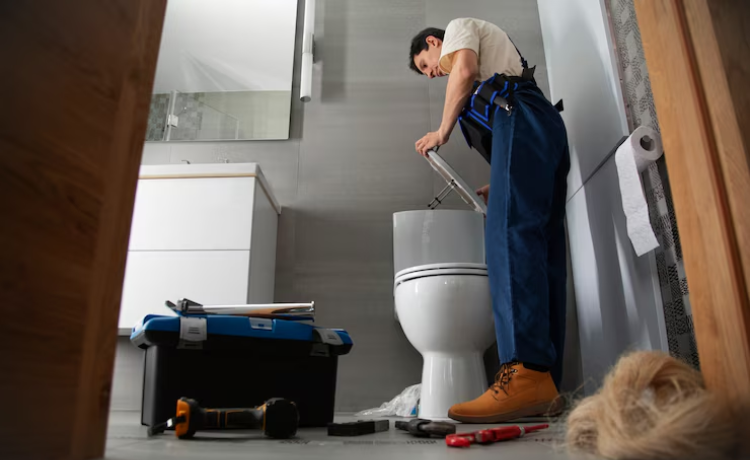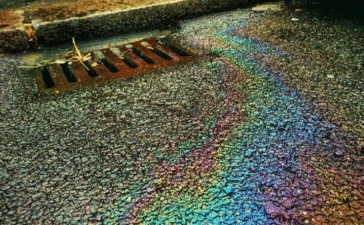A sudden sewer smell in bathroom isn’t just unpleasant; it might also signal an underlying plumbing issue. This odor, often described as resembling rotten eggs, comes from sewer gas that has found its way into your space. While intermittent odors might not seem like a big deal, constant exposure to sewer gas can be hazardous, causing headaches, nausea, and dizziness, and posing serious risks to indoor air quality.
Identifying the cause of the sewer odor and addressing it promptly is crucial for the safety and comfort of your home. This guide explores the causes of sewer smells in bathrooms, DIY solutions, when to seek professional plumbing help, and how to prevent future occurrences.
Understanding the Sewer Smell: What It Really Is
sewer smell in bathroom primarily consists of methane, hydrogen sulfide, and ammonia, all of which are byproducts of decaying organic waste in sewer systems. Hydrogen sulfide is what lends the odor its distinctive “rotten egg” smell. The gases can enter your bathroom through faulty plumbing and are typically harmless in small amounts but can be dangerous if prolonged exposure occurs.
Homeowners often dismiss these smells as minor annoyances, but they also impact your indoor air quality and could indicate underlying plumbing damage. Understanding why these gases are entering your space is vital to resolving the issue effectively.
Common Causes of Sewer Smell in Bathroom
Dry or Empty P-Traps
The P-trap is a U-shaped pipe under your sink, shower, or tub drain designed to hold water and block sewer gases from entering your home. If the trap dries out due to infrequent use, sewer gas can seep into the room. This issue is common in guest bathrooms or fixtures that are rarely used.
Clogged or Blocked Drain Vents
Your home’s plumbing system relies on venting to regulate air pressure. These vent stacks extend through the roof and allow sewer gases to escape safely. A blockage caused by debris or animal nests can create negative pressure, causing sewer gas to back up into your bathroom fixtures.
Broken or Cracked Sewer Pipes
Cracked or broken sewer pipes beneath your bathroom floor or behind walls can lead to gas leaks. Besides the distinct odor, you may notice damp spots, mold growth, or an increase in pests in the affected area, hinting at a leak in the sewer line.
Worn-Out Toilet Wax Ring
The wax ring underneath your toilet seals its base against sewer gases. Over time, this ring can degrade or become loose, allowing odors to seep out from the toilet base, especially after flushing.
Bacteria or Biofilm in Drains
Organic buildup in your sink or shower drains can create a breeding ground for bacteria. This biofilm can produce a foul smell that mimics sewer gas. Frequent cleaning is key to preventing unpleasant odors caused by bacteria build-up.
DIY Fixes for Getting Rid of Sewer Smell
Refill P-Traps Regularly
Pouring water down rarely used drains will restore the water barrier in the P-traps. Add a splash of mineral oil to slow evaporation, especially in guest bathrooms.
Use Baking Soda and Vinegar Drain Cleanse
Combine one cup of baking soda and one cup of vinegar, followed by boiling water to flush the drain. This natural solution helps neutralize odors and clear minor blockages. Avoid using harsh chemicals that may corrode your pipes over time.
Install Drain Covers or Stoppers
Prevent debris and hair from clogging your drains by using drain covers. Keep these covers clean to maintain smooth drainage and limit odor-causing buildup.
Clean Shower and Sink Drains with Enzyme Cleaners
Enzyme-based drain cleaners are effective for eliminating organic matter buildup without harming your pipes. Use these regularly to prevent bacterial films in your drains.
When to Call a Professional Plumber
If the odor persists despite your best DIY efforts, it’s time to involve a professional plumber. Professionals use advanced methods like smoke tests to identify leaks, inspect vent blocks using cameras, or snake drains to eliminate severe clogs. The average cost to repair sewer odor problems ranges from $150 to $450, depending on the severity of the issue and the repairs required.
Ignoring the problem when DIY efforts don’t work can result in extensive damage to your plumbing system, costing significantly more in the long term. Promptly calling a certified plumber ensures that the issue is resolved effectively and permanently.
Preventing Future Sewer Smells
Preventing sewer smells requires regular inspection and maintenance of your bathroom plumbing. Create a routine drain maintenance schedule to keep your pipes clean and free of buildup. Pour water down drains that are rarely used to maintain water levels in P-traps.
Install air admittance valves for improved venting if your system frequently encounters venting problems. Lastly, schedule regular plumbing inspections to identify potential issues before they escalate into costly repairs.
Health Risks of Sewer Gas Exposure
Short-term exposure to sewer gas may cause symptoms like headaches, nausea, and irritation of the eyes and throat. Long-term exposure, especially to high concentrations of hydrogen sulfide, can lead to more severe health effects, including respiratory distress and even loss of consciousness in extreme cases. Children, elderly individuals, and those with pre-existing respiratory conditions are particularly vulnerable.
Improving bathroom ventilation and addressing sewer odors promptly protects not only your home’s indoor air quality but also the well-being of everyone in your household.
You would also like: “green tile bathroom“
Regain Comfort and Safety in Your Bathroom
Identifying the root cause of sewer smells in your bathroom doesn’t just eliminate unpleasant odors. It directly contributes to improving your health, safety, and peace of mind. By understanding what causes these smells, attempting simple fixes, calling a professional when necessary, and maintaining good plumbing habits, your bathroom can remain a fresh, safe, and inviting space.
For persistent issues, consult a licensed plumber to conduct a professional inspection and provide tailored solutions. Taking immediate steps ensures that minor disruptions don’t develop into larger, costlier problems in the future.
FAQ
What causes a sewer smell in bathroom?
Sewer smells in bathrooms can be caused by dry P-traps, blocked vent stacks, broken sewer pipes, a worn-out wax ring, or biological buildup in drains.
Is sewer gas dangerous to breathe?
Yes, prolonged exposure to sewer gas can lead to health risks such as headaches, nausea, respiratory irritation, and in extreme cases, loss of consciousness.
How do I know if my toilet wax ring is bad?
Signs of a failing toilet wax ring include odors near the toilet base, water leaks around the toilet, and a wobbly toilet.
Can sewer smells come from my shower drain?
Yes, sewer smells can arise from shower drains due to dry P-traps or bacterial buildup.












